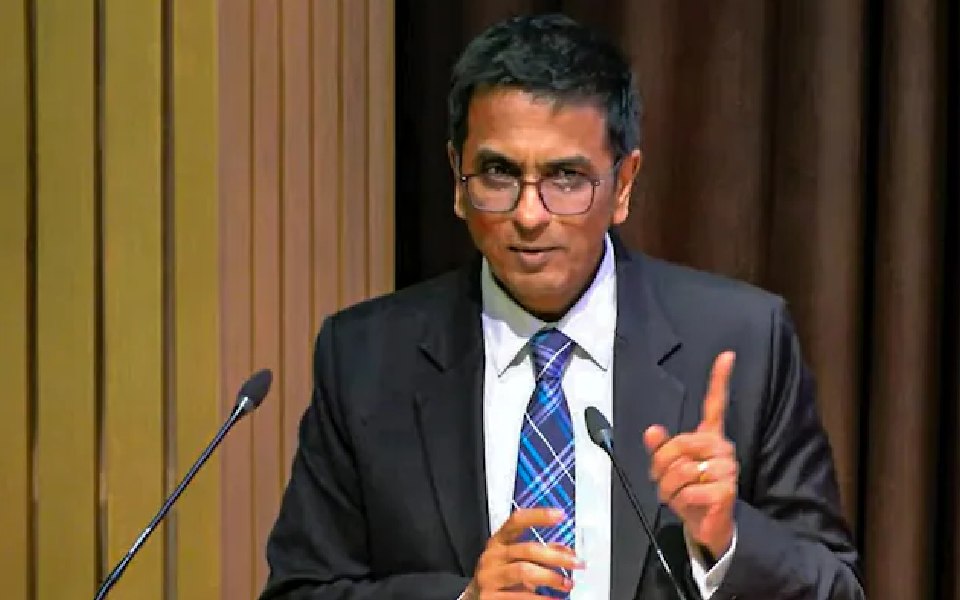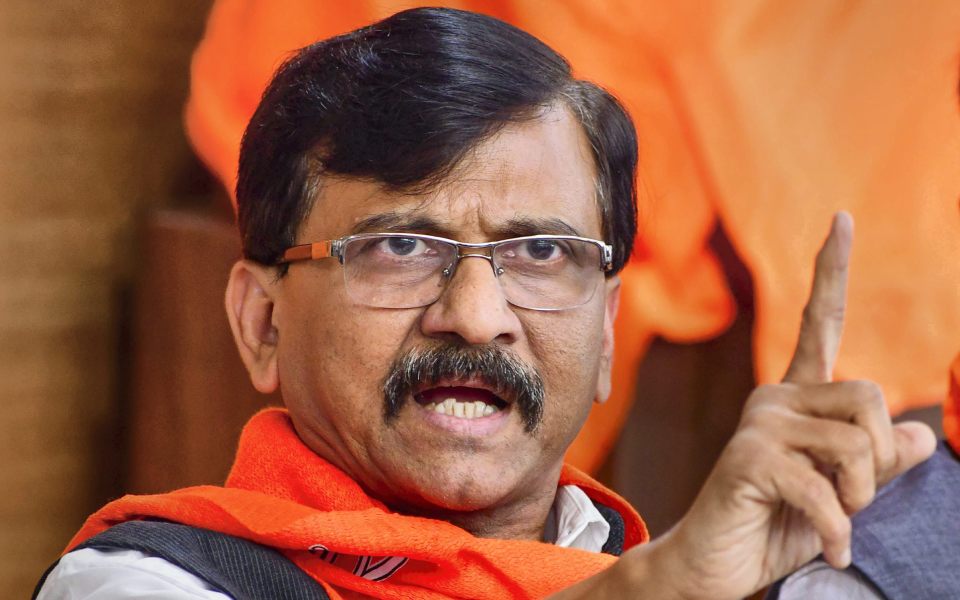New Delhi, Sep 16: There is no dearth of legal provisions to protect the interest of women in private and public spaces but law alone cannot make a just system, Chief Justice of India D Y Chandrachud said on Monday, stressing that society also has to shed its "patriarchal social attitude".
Speaking at News18 Network's She Shakti event, CJI Chandrachud said, "We must foster institutional and individual ability to look beyond the male default".
"There is no dearth of substantive and procedural legal provisions targeted towards protecting the interests of women in private and public situations. But good laws including the stringent laws alone do not make for a just society.
"Above all we need to change our mindsets. The mindsets must move from making concessions for women to recognising their entitlement to lead lives based on freedom and equality. We must zealously guard against apparently protective laws infringing women's liberties and choices," the CJI said.
Addressing the event, he said, "Talking about women's rights is not a women's thing. Some of the great life lessons I have learnt from my female colleagues."
"I believe equal participation of women is important for a better society. Before we adopted the Constitution of India, the Indian Women's Charter of Life was drafted by Hansa Mehta, who was feminist," he added.
The CJI said issues of safety, equality of opportunity, dignity and empowerment are not subsets that ought to be discussed in silos. "Every one of us in the country has to be a part of this conversation."
"Equal participation of women in governance, policy and leadership roles is positively linked to better development outcomes. When we either create or fail to address barriers in the path of women, we are jeopardizing our quest for a better society. Indifference is no longer an option," the CJI said.
He said there has been an increasing intake of women Civil Judges through exams -- 58 per cent of the total candidates in Rajasthan in 2023; 66 per cent of the appointments in Delhi in 2023, 54 per cent of the appointments in Uttar Pradesh in 2022 and 72 per cent of the total number of judicial officers appointed in Kerala are women.
Justice Chandrachud said the labour force participation of women is 37 per cent while the contribution of women to the GDP is 18 per cent.
"We have not exactly met the pre-independence hopes about women's economic participation. A part of the reason is the continued gendered allocation of domestic labour. Even as women are entering the workforce, they are never divorced from the domestic realm.
"They must simultaneously juggle domestic and care-giving chores. They are doubly burdened - almost as a penalty for transgressing the domestic threshold," he said.
The CJI said gender equality is a function not only of statistics but a function of lived realities of women.
"This also applies to assimilate traditionally excluded groups such as persons with disabilities, transgender and queer persons. Our expectations from these groups are heavily based on the stereotypical understanding of their supposedly innate tendencies.
"We fail to appreciate them as individuals. As women break rank and enter professional workspaces traditionally dominated by men, they are expected to act like men. Ironically enough, they are also tacitly expected to act like women, act-their-part, lest they upset the code of womanly conduct," he said.
He said that for a large part of their lives, institutions have operated in an information deficit about the objective abilities of women.
"Women traditionally were not a priority in institutional design. Even as they break into elusive and exclusionary places, women are met with institutional apathy at best, and hostility at worst. The result is high attrition rates and professional stagnation in entry level and mid-level roles for women," Justice Chandrachud said.
Let the Truth be known. If you read VB and like VB, please be a VB Supporter and Help us deliver the Truth to one and all.
New Delhi, Nov 28: Airlines received 999 hoax bomb threats this year till November 14 and as many as 256 FIRs have been filed while guidelines have been issued by aviation security regulator BCAS for objective assessment of threats, the government said on Thursday.
In a written reply to the Lok Sabha, Minister of State for Civil Aviation Murlidhar Mohol said a total of 1,148 hoax bomb threat messages/calls have been received since August 2022 till November 14, 2024 threatening the operations of international and domestic air travel.
While 999 threats were received by airlines during the period from January to November 14, 2024, the count stood at 122 last year and at 27 for the August-December 2022 period.
"256 FIRs have been filed since January 2024 till 14 November 2024, out of which 163 FIRs have been filed during 14 October- 14 November 2024. 12 arrests have been made in view of hoax bomb threat since January 2024 till 14 November 2024," the minister said.
The Bureau of Civil Aviation Security (BCAS) has issued guidelines for objective assessment of threats. The indicative factor has been useful in reducing time taken by the Bomb Threat Assessment Committee (BTAC) during the decision-making process.
"Also, to reduce the overall time taken for convening BTAC to less than 5 minutes, virtual assembly of BTAC through pre-generated video link has been set up. Further, advisories for compulsory 10 per cent of secondary ladder point check-in for all flights, strict monitoring of non-scheduled flight operations, enhanced security measures and surveillance at cargo terminals were issued," Mohol said.
Further, the minister said the government is considering amending the Aircraft (Security) Rules, 2023 to put hoax threat messenger in the no-fly list.
"It is also being considered to amend Suppression of Unlawful Acts against Safety of Civil Aviation for covering Aircraft in flight as well as on ground, airport etc," he added.





